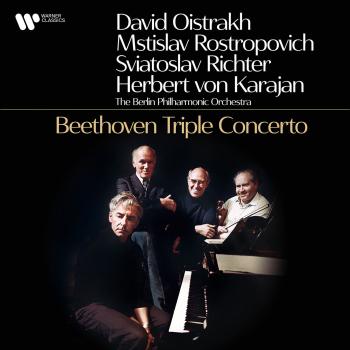
L'arte Di Diminuire L'Estro d'Orfeo & Leonor de Lera
Album Info
Album Veröffentlichung:
2020
HRA-Veröffentlichung:
06.03.2020
Label: Challenge Classics
Genre: Classical
Subgenre: Chamber Music
Interpret: L'Estro d'Orfeo & Leonor de Lera
Das Album enthält Albumcover
- Leonor de Lera:
- 1 Descendi in hortum meum di Palestrina passeggiato 04:02
- Francesco Rognoni:
- 2 Vestiva i colli. Modo difficile per suonar alla bastarda 04:36
- Biagio Marini (1597-1665):
- 3 Romanesca per violino solo e basso se piace 04:51
- Leonor de Lera:
- 4 Pulchra es amica mea di Palestrina 05:09
- 5 Diminuzioni sopra “Usurpator tiranno“ di Giovanni Felice Sances 06:42
- Marco Uccellini (1610-1680):
- 6 Aria decima quarta a doi violini sopra “La mia pedrina” 04:11
- Girolamo Dalla Casa:
- 7 Petit Jacquet da sonar con la Viola Bastarda 04:31
- Giovanni Kapsberger (1580 - 1651):
- 8 Folia 07:16
- 9 Aria quinta sopra “La Bergamasca” 04:24
- Rodney Prada:
- 10 Io canterei d‘amor di Cipriano per suonar alla bastarda 03:51
- Javier Nunez:
- 11 O felici occhi miei di Arcadelt 05:05
- Bartolome Salaverde (1580 - 1640)
- 12 Vestiva i colli passeggiato a doi. Basso e soprano 03:43
- Salomone Rossi (1570 - 1930):
- 13 Sonata quinta sopra un’Aria francese 02:36
- Girolamo Dalla Casa:
- 14 Petite fleur coincte 03:18
- Leonor de Lera:
- 15 Tarantella del Gargano diminuita 04:49
Info zu L'arte Di Diminuire
Das von der Geigerin Leonor de Lera gegründete spanische Ensemble L’Estro d’Orfeo ist spezialisiert auf die Instrumentalmusik des 17. Jahrhunderts und setzt sich zusammen aus Musikern, die von beiden Seiten des Atlantiks stammen und sich allesamt der historischen Aufführungspraxis verschrieben haben, was den Einsatz von Originalinstrumenten mit einschließt.
Leonor de Lera wurde in Madrid geboren und erhielt ihren ersten Violinunterricht im Alter von sechs Jahren. Sie studierte an der Londoner Guildhall School of Music and Drama, wo sie sich als Schülerin von Rachel Podger auf die Barockvioline konzentrierte. Sie erhielt ein Postgraduierten-Stipendium für die Royal Academy of Music und vertiefte ihre Ausbildung bei Musikern wie Enrico Onofri, Manfredo Kraemer und Pavel Besnoziuk. Zu den zahlreichen Ensembles und Musikern, mit denen sie im Laufe ihrer Karriere zusammengearbeitet hat, zählen etwa die Accadamia Bizantina, L’Arpeggiata, Capriccio Stravagante, Christina Pluhar, Reinhard Goebel und Skip Sempé.
L’Estro d’Orfeo:
Leonor de Lera, Barockvioline
Josué Meléndez, Zink
Rodney Prada, Viola da Gamba
Josep Maria Marti, Theorbe, Barockgitarre
Javier Núnez, Cembalo, Orgel
L'Estro d'Orfeo & Leonor de Lera
Founded by Leonor de Lera, El Canto de Orfeo is an ensemble that specializes in instrumental music of the seventeenth century, making use of period instruments and with a historically informed approach in line with the aesthetics of the time.
It takes its name and inspiration from the greek legend of Orpheus. Son of the god Apollo, god of the music and the arts; and Calliope, the muse of poetry and eloquence; Orpheus inherited from them the gift of music and poetry. As Apollo was considered the best musician amongst the gods, so was Orpheus considered the best musician amongst the mortals.
By dint of his music and singing, he could charm all living things and even rocks. He had the ability to appease and coax the wild beasts; the birds, moved by the sound of his music, would fall under a spell and stop flying; the trees would unearth their roots to move closer and crowd around him and the rivers would arrest their course to listen to his singing. There was not a god or mortal that could withstand his strains.
Taking Orpheus as its inspiration and following the ideals of the baroque period, the ensemble El Canto de Orfeo has as its purpose inviting its audience to take a journey through the wide variety of emotions that music presents to us.
Its members, all of them with an extensive training and profesional experience in the early music field, and with origins that span both sides of the Atlantic Ocean, share one common goal: to bring to life and to spread the musical repertoire of one of the most fascinating periods of our history.
Dieses Album enthält kein Booklet










